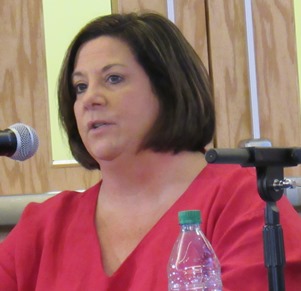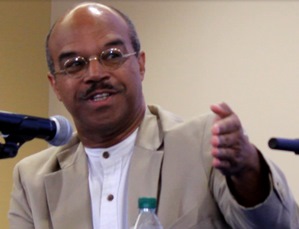

by Mary Rupert
When the election results were totaled on Tuesday night, Rose Mulvany Henry had the lead in the Board of Public Utilities, at large position 3, contest by 44 votes over David Haley.
Today, Mulvany Henry, a utility attorney, said she was “cautiously optimistic.”
“Certainly it’s a very tight race and I’m cautiously optimistic that the lead will hold,” she said.
While she is happy to be ahead, she will feel much better when the results are certified, she added.
David Haley, a public affairs counsel and a state senator who wound up on the short end of the vote total, said he has heard there are about 200 provisional and mail-in ballots that may yet be considered.
The candidates won’t know the final outcome until the election canvass, scheduled for Nov. 18.
“I’m optimistic that the vote totals are going to change in favor of the Haley campaign by the final canvass,” Haley said today.
Mulvany Henry: From second place in primary to first on election night
Mulvany Henry came from behind, in second place at the primary, to win on general election night Tuesday.
“I’m grateful to the community,” she said. “This is certainly not something I planned to do at the beginning of 2019. I’ve had a somewhat tumultuous year.”
Mulvany Henry lost her father, Blake Mulvany, a former principal at Bishop Ward High School, after a nine-month illness in early June, shortly after she filed for office.
“I’m extremely thankful to everyone in KCK that had faith in me, and took a chance on a first-time candidate for this position,” Mulvany Henry said.
“I’m willing, ready and eager to roll up my sleeves and get to work,” Mulvany Henry said. “Hopefully these results will hold and I will get the opportunity to serve the community.”
What changed since the primary?
One factor was that after the primary, Mulvany Henry worked with several other primary candidates to get to know them better and gain support from some of them, she said.
“I think they were happy that I moved on, and I think they understand I have an expertise in this particular industry that doesn’t come along every day,” she said.
Another change since the primary was that the IBEW local and other groups including the Kansas City, Kansas, firefighters political action committees endorsed Mulvany Henry.
“It’s important to balance the community, the ratepayers, to be a voice for the people, and also understand the difficulties and challenges that the employees of the BPU face,” Mulvany Henry said. “If the results are certified, I will be happy to balance those interests. One thing I will never do is to stop listening to the ratepayers. We need to address some of the issues out there. Some of the candidates in the primary believe I’ll be a good person to do that and I don’t intend to let them down.”
She said she has always been a supporter of organized labor, and appreciates that society as a whole wouldn’t have weekends and fair pay without them.
“We’re a blue collar town; I’m proud to have that support,” she said.
A third change was that turnout was greater in the general election than it was in the primary. Turnout was 16.4 percent in the general election as compared to 9.6 percent in the primary election in August.
On the topic of what she would like to accomplish, Mulvany Henry said she realizes she is only one person, not the entire six-person board. She said she is very serious about transparency, accountability and looking at the rules concerning ratepayers to figure out if they need to be revamped. One thing she would like to see is the live streaming of BPU meetings, she said.
Mulvany Henry said she and Haley tried to run positive campaigns. She said she is grateful there wasn’t negative campaigning in her contest.
Haley: Disappointed with voter turnout
Haley said he was disappointed with voter turnout. Although it was better than the primary, turnout continues to be a disappointment, with less than 17 percent of the registered voters participating, he said. Almost 48 percent of the voters turned out a year ago in November 2018, which included contests for governor and Congress.
“Wyandotte County needs to vote better,” he said. “Wyandotte County has the power to be a stronger player in the state and certainly in our local elections, if more people who are currently registered would turn out and vote. I just don’t understand it.”
He noted that if one more person in each of KCK’s precincts had voted for him, he would be ahead right now. Every vote counts, he added.
Haley said provisional ballots come from the core areas where people don’t have sufficient identification, or have moved, such as in an area with a large number of renters, from one address to another.
He said his campaign represents people in the core areas who are having issues with the utility company and are often caught in the crossfire.
“I feel confident that the margin will shrink between the Mulvany and Haley campaign,” Haley said today. “I don’t know where those 200 votes city-wide are coming from, it’s not an exact science at all.”
It’s likely that as many as a third of the provisional ballots will not be counted at all, he added, while over 100 probably will be counted.
Haley said Mulvany Henry was “an incredibly impressive person.” He also pointed out that her campaign spent far more money than his campaign.
Haley said he’s really not sure why he didn’t get the support of organized labor this campaign, because he has had their support in past years. Perhaps it was because of a member of his campaign, he said. This member of his campaign has brought nonpartisan support to it and a lot of knowledge about the utility, he said.
Haley said that regardless of the outcome of the canvassing, he will continue to push for some type of involvement by the Kansas Corporation Commission, such as accessing their opinions and comparing policies of other utilities to the BPU.
Haley said he plans to run again for the state Senate.
“As a legislator, I know more now than ever that the ratepayers of Wyandotte County are incensed by the insensitivity of our monopoly utility to the needs, the questions of the public,” Haley said.
Haley said he has witnessed a man who came out of the BPU offices after meeting with customer service representatives. The man started crying on the sidewalk. A woman with two kids came out shortly afterward, wiping tears from her eyes with the back of her hand, he said.
“I can’t get these people out of my mind,” Haley said.
With a municipally owned utility, he said he doesn’t accept the theory that wages are too low for people here to afford power and light services. Part of the problem is corporate welfare and bailouts, he believes.
“I don’t buy that we have many people who can’t afford it, when we have some corporate entities who can’t afford to pay their bill, the most glaring is the T-Bones,” he said.
